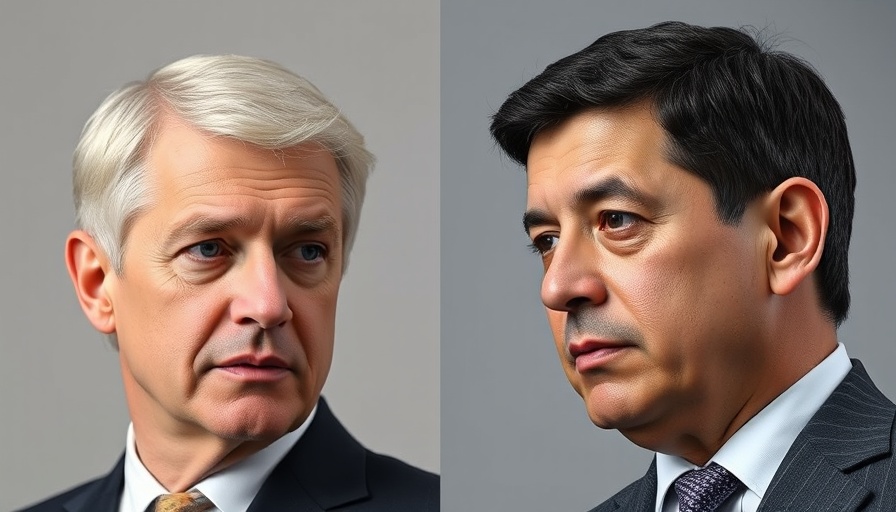
Putin's Conditional Ceasefire: A Glimpse of Hope or Tactical Delay?
In a recent phone conversation with President Donald Trump, Russian President Vladimir Putin agreed to pause attacks on Ukraine's energy infrastructure for 30 days, marking a significant yet partial step in ongoing diplomatic discussions. However, Putin's refusal to agree to a full ceasefire reveals the complexities of the negotiation and his strategic calculus regarding the war in Ukraine. This pause hints at a potential movement towards peace, albeit under strict conditions posed by Moscow that might complicate matters further.
Understanding the Stakes: Energy vs. Military Aid
The crux of the negotiations lies in Putin's insistence that any meaningful ceasefire must coincide with the cessation of foreign military support and intelligence for Ukraine. This is not merely a negotiating tactic; it highlights Russia's apprehension that a lull in fighting would allow Ukraine to reequip and regroup, potentially turning the tide in its favor. As seen in the past, such conditions have effectively shifted the power dynamic in negotiations, making it crucial for Ukraine to tread cautiously in any agreement.
Reactions from Ukraine's Leadership
Ukrainian President Volodymyr Zelenskyy has expressed cautious optimism regarding a ceasefire focused on energy infrastructure. However, he emphasized the necessity of detailed discussions to avoid further military escalation during the pause. Zelenskyy's comments reflect a broader wariness among Ukrainian leaders, who are acutely aware of Russia's historical use of negotiations as a strategic tool to buy time for military gains.
What’s Next? The Path to More Negotiations
The evident willingness of both the U.S. and Russia to engage in further discussions raises questions about the potential outcomes of these upcoming talks. The U.S. administration is cautiously optimistic, proposing a roadmap that includes a maritime ceasefire in the Black Sea and eventual negotiations for permanent peace. Despite the apparent progress, many caution against the risk of viewing small concessions as definitive breakthroughs amidst a backdrop of continued violence.
Global Response: Continued Support for Ukraine
European allies have reiterated their commitment to supporting Ukraine, dismissing Putin's conditions that require a halt to military aid. This unity is crucial as it shows a firm front against Russia's tactics, aimed at isolating Ukraine both politically and militarily. Poland and the Baltic states are among those emphasizing that enduring peace must not come at the cost of Ukraine's sovereignty or defense capabilities.
As the situation unfolds, it is evident that the international community must remain vigilant. The implications of the ceasefire—or lack thereof—extend beyond the immediate conflict, potentially affecting global energy markets, geopolitical alliances, and the security landscape in Europe.
Ultimately, while a halt to attacks on energy infrastructure may provide temporary relief, lasting peace will depend on a far more nuanced and intricate agreement.
 Add Row
Add Row  Add Element
Add Element 



Write A Comment